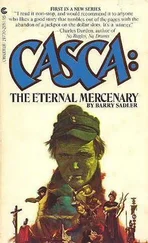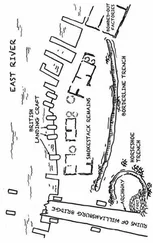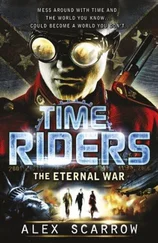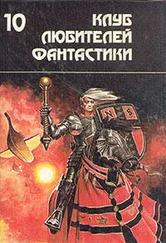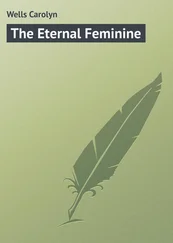And yet someone was kind enough to play the matchmaker, and I took a wife. Well, rather, I married into her family and took their name so perhaps “took a wife” isn’t quite an accurate statement. If I hadn’t lost my arm, perhaps a better life would have awaited me. No, if I hadn’t lost my arm, I would likely have died in the skies. That would have been fine. I wasn’t afraid of death in the slightest. Wouldn’t it have been more splendid to die a manly, spectacular death than to eke out a miserable life covered in dirt in the countryside?
In my old age I’ve come to fully realize that I wanted to die a kamikaze. Had I not lacked a limb, I would have volunteered for sure.
Three years after I lost my arm, Miyabe died a kamikaze. I don’t think he volunteered. There’s no doubt they forced him into the Special Attack Force and that he begrudgingly followed orders. Thus a man who put his life on the line during every battle has survived into old age, while another man who held his life so dear ended up dead.
If that isn’t an example of life’s irony, I don’t know what it is.
___
It was past six o’clock but the skies were still light.
My gait was heavy as we made our way back to the station. I’m sure it was the same for Keiko. Her expression was grim.
In her handbag was the voice recorder that contained Hasegawa’s tale, but I was uncertain as to whether she would want to listen to it again.
It had been an unpleasant interview. No, it couldn’t be called an interview. Hasegawa’s monologue. The more he spoke the more he seemed to think back on his hatred of our grandfather, and he bluntly leveled that hatred at us, too. I was overwhelmed by his gaze, filled with so much malice and hostility.
“What a nasty old man,” I said some time after we had left his house. “He curses his fate. Maybe he thinks that his life was taken from him when he lost his arm. I bet he blames our grandfather for his missing arm, too.”
Keiko was silent for a while. Then she sighed and said, “I feel sorry for him.”
I was struck momentarily dumb.
“That was the first time I’d heard about the war from a vet. It wasn’t easy. I feel like I understand how he feels. I’m sure he went through a lot after the war, too.”
I didn’t have a reply. If anything, I was ashamed for saying something so bitter after hearing what she said.
For a while we walked in silence back down the road we had traveled a few hours prior.
“But I didn’t think the stories about our grandfather were fabrications,” I blurted out.
Keiko let out a modest sigh. “Honestly speaking, I’m a little disappointed in him. They said he was a kamikaze so I thought he was brave. To learn he was actually a coward… Actually, I’m a pacifist, so I don’t really want my grandfather to have been some war hero. But aside from that, I’m disappointed. Aren’t you, Kentaro?”
I nodded silently. Hasegawa’s phrasing, that our grandfather was a coward, weighed heavily on my mind. My grandfather was someone who flew around the skies fearing for his life. I realized that I was reacting to the word “coward” as if the old man had insulted me personally. That’s because I was running away, too. So then, my grandfather’s blood coursed through my veins.
Of course, my grandfather had been running from death, which was totally not true for me. Yet, it seemed certain that my grandfather had run from his duty as a pilot.
While I—well, what on earth was I running from?
“Ugh. This research is already too painful,” my sister muttered to no one in particular. I felt the same way.
The week after meeting Hasegawa, I visited Grandpa to tell him that we were doing research on our biological grandfather.
Keiko said there was no need to go out of our way to tell him, but I hated the idea of sneaking around behind my beloved grandfather’s back. I was also confident that he wasn’t the sort to take issue.
But there was a concern. Ever since developing a heart problem the year before, he had been recuperating at home. He had essentially been retired from his long career as a lawyer for the past several years, leaving the running of his law firm to others. He had a regular housekeeper who looked after him and the house.
He used to often say, “Once you pass the bar, you’d better head straight to my firm.” But recently he had given up saying such things, and I was a little saddened by that. Maybe he thought it was no big deal for me to take a three- or four-year detour since he himself had worked for the National Railway for a decade before passing the bar.
___
When I arrived, Grandpa was already entertaining someone.
Shuichi Fujiki had once been a part-timer at Grandpa’s law office. An impoverished student planning to take the bar, even after graduating he’d studied for it while working at the firm. But several years ago, when his father fell ill, Fujiki was forced to abandon his dream of becoming a lawyer and to go back to his hometown to continue the family ironworks. He was paying Grandpa a visit after attending a college reunion the day before.
“Long time, no see, Fujiki-san.”
“Same here.”
Two years had passed since I’d last seen him. He made a point to visit Grandpa whenever he was in Tokyo.
“Ken-chan, you’ve grown into a fine young man. You were still in high school when I left the firm.”
Fujiki had said the exact same thing when I saw him last. I was afraid that he was going to ask, “So how’d it go this year?” He’d always told me seriously that he’d “never seen a kid as smart as you. You should be able to pass the bar before you’ve even graduated.” He was always very nice to me, and this time he didn’t ask about my current circumstances. I appreciated his kindness.
“So how’s your ironworks going, Fujiki-san?”
“Not well at all,” he replied with a laugh. “We lose money just staying open. To be honest, I want to close up the factory but I can’t do that to my employees.”
He scratched at his head that was beginning to show signs of gray. He looked like a typical worn-out middle-aged man. It was a little hard seeing him like that since he’d always seemed eternally youthful. As I looked at this man who had failed to pass the bar year after year, I felt as though I was looking at an image of my own future.
“Are you married, Fujiki-san?”
“No, not yet. Working my tail off at the ironworks, I woke up to find I’d turned thirty-six,” he laughed.
Fujiki soon bid us farewell and left. After he had gone, my grandfather said, “When he was with our firm I was on active duty and going strong.” He looked briefly lost in nostalgia.
“Grandpa,” I hazarded, making up my mind, “I’m doing research on Kyuzo Miyabe.”
I thought I saw his features stiffen for a moment. Damn, I fretted. Guess it doesn’t sit well with him after all.
“Matsuno’s first husband, huh…”
I explained in a rush how my sister had asked me to help and that Mom wanted to know more about her real father.
“Kiyoko does?” Grandpa asked. Then he muttered, “I see.”
“I actually understand how Mom feels,” I said.
Grandpa stared into my eyes. There was something unnerving in his gaze.
When my grandmother had died, he had clung to her lifeless body and wailed. That was the first time I had ever seen him cry. He sobbed so hard that the hospital nurses were moved to tears. He loved Grandma from the bottom of his heart. Perhaps it was painful for him to recall that she had once been another man’s wife. They say men prized pure women back in those days, but she’d even borne another man’s child. Kyuzo Miyabe could hardly be a welcome figure for Grandpa.
Читать дальше
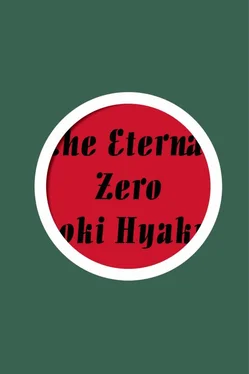
![Nick Cracknell - The Quiet Apocalypse [= Island Zero]](/books/28041/nick-cracknell-the-quiet-apocalypse-island-zero-thumb.webp)


